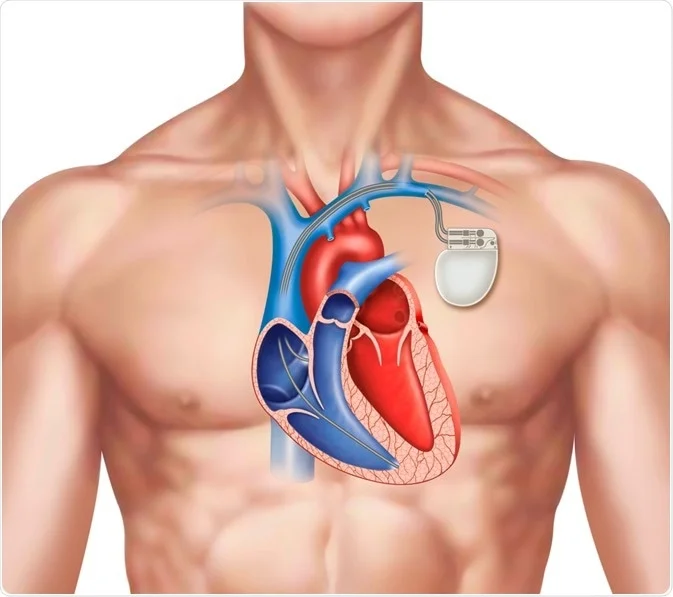
Diet tips for pacemaker patients: Foods to eat and avoid.
A pacemaker is a small device implanted to help regulate abnormal heart rhythms. After receiving a pacemaker implant in Pune,
A pacemaker is a small device implanted to help regulate abnormal heart rhythms. After receiving a pacemaker implant in Pune, it’s essential to maintain a heart-healthy diet to support your cardiovascular system and ensure the long-term success of the procedure whether you’ve had a Pacemaker Implant or are under the care of the Best Cardiologist in Pune, making the right food choices can significantly impact your health.
Foods to Eat
1. Leafy Green Vegetables Leafy greens contain vital nutrients like vitamin K, important for blood clotting; consumed in moderation when on blood thinners to prevent interaction.
2. Whole Grains Adding whole grains such as oats, brown rice, and whole wheat to your diet can cut cholesterol and boost heart health as they are rich in fiber, aiding in decreasing LDL cholesterol and stabilizing blood sugar.
3. Lean Proteins Protein is essential for tissue repair and maintaining muscle mass, especially after surgery or a procedure like Angioplasty Treatment in Pune. Opt for lean proteins such as chicken, turkey, fish, and plant-based options like beans and lentils. Fish rich in omega-3 fatty acids, like salmon and mackerel, are particularly heart-friendly, as omega-3s help reduce inflammation and lower the risk of heart disease.
4. Fruits Rich in Antioxidants Antioxidant-rich fruits like berries, oranges, and apples neutralize free radicals, reducing oxidative stress and benefiting pacemaker patients’ cardiovascular health. Blueberries and strawberries with flavonoids lower heart disease risk.
5. Nuts and Seeds Walnuts, almonds, flaxseeds, and chia seeds provide heart-healthy fats that can improve cholesterol levels. These nuts and seeds are excellent sources of magnesium, which plays a key role in maintaining a steady heart rhythm.
Foods to Avoid
1. High-Sodium Foods One of the primary dietary considerations for pacemaker patients is to avoid high-sodium foods. Excessive salt intake can lead to hypertension (high blood pressure), which strains the heart. Processed foods like canned soups, deli meats, and chips often contain hidden sodium. For heart health, aim to keep sodium intake below 1,500 mg per day.
2. Sugary Foods and Beverages Sugary drinks like soda and sweetened fruit juices can lead to weight gain, insulin resistance, and increased cholesterol levels. Pacemaker patients should minimize their consumption of refined sugars and opt for naturally sweet foods like fruits instead.
3. Saturated and Trans-Fats Saturated fats, found in red meat, butter, and full-fat dairy products, can increase cholesterol levels and contribute to plaque buildup in the arteries. Trans fats, often present in fried foods and packaged snacks, are particularly harmful to heart health. These fats can increase the risk of atherosclerosis, leading to complications for pacemaker patients.
4. Excessive Alcohol Alcohol, especially in excessive amounts, can interfere with the electrical activity of the heart and impact the functionality of a pacemaker. It can also lead to weight gain, high blood pressure, and increased cholesterol levels. If you drink alcohol, do so in moderation—no more than one drink per day for women and two for men.
5. Caffeine While caffeine in moderate amounts may be safe for some people, it can cause arrhythmias (irregular heartbeats) in others. Pacemaker patients should monitor their caffeine intake and avoid consuming excessive amounts of coffee, tea, or energy drinks, which can overstimulate the heart.
Conclusion
A well-balanced, heart-healthy diet is essential for pacemaker patients to ensure the longevity of their device and overall cardiovascular well-being. By choosing nutrient-rich foods like leafy greens, whole grains, and lean proteins while avoiding high-sodium, sugary, and fatty foods, you can promote optimal heart health.
Whether you’ve had a Pacemaker Implant in Pune or are undergoing Angioplasty Treatment in Pune, consulting with the Best Cardiologist in Pune at a trusted Heart Clinic in Pune can provide personalized dietary advice to suit your specific needs.
A healthy diet, coupled with regular check-ups, is key to a long and healthy life with a pacemaker

